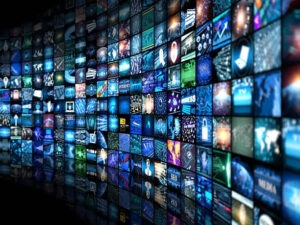
In recent years, the landscape of television and video content consumption has undergone a significant transformation, with Internet Protocol Television (IPTV) emerging as a groundbreaking technology. IPTV leverages the power of the internet to deliver television content, providing users with a versatile and dynamic alternative to traditional cable and satellite services. This article will delve into the world of IPTV, exploring its advantages and how it compares to other forms of television and video content delivery.
What is IPTV?
IPTV, or Internet Protocol Television, is a technology that delivers television services over the internet instead of traditional cable or satellite methods. Unlike conventional broadcasting methods, IPTV relies on a network infrastructure to transmit audio, video, and other multimedia content to viewers.
Advantages of IPTV
- Unmatched Flexibility: One of the key advantages of IPTV is its flexibility. Users can access content on a variety of devices, including smart TVs, smartphones, tablets, and computers. This flexibility allows viewers to enjoy their favorite shows, movies, and live events wherever they are, without being tied to a specific location.
- Interactive Features: IPTV often comes with interactive features that enhance the viewing experience. Users can pause, rewind, or fast-forward live TV, and some services even offer catch-up TV, allowing viewers to watch content that was broadcasted earlier. Additionally, interactive menus and on-screen guides make navigating through channels and content easier.
- Extensive Content Libraries: IPTV providers offer a wide range of content, including live TV channels, on-demand movies, TV series, and more. This vast library allows users to explore a diverse array of entertainment options, catering to a broad spectrum of tastes and preferences.
- Cost-Effectiveness: Compared to traditional cable or satellite services, IPTV can be more cost-effective. Users often have the option to choose from different subscription packages based on their preferences and budget, eliminating the need for extensive channel bundles that may not be of interest.
- Global Accessibility: IPTV transcends geographical boundaries, providing viewers with access to content from around the world. This global accessibility is especially appealing to multicultural audiences who seek diverse programming from various regions.
Comparison with Other Platforms
- Versus Cable and Satellite: IPTV stands out by offering greater flexibility and interactivity compared to traditional cable and satellite services. The ability to watch content on various devices and the inclusion of interactive features give IPTV an edge in terms of user experience.
- Streaming Services: While popular streaming services like Netflix and Hulu have gained widespread popularity, they may not offer live TV channels in the same manner as IPTV. IPTV combines the convenience of on-demand content with the real-time experience of traditional television, providing a comprehensive entertainment solution.
- Quality of Service: IPTV, when delivered over a robust internet connection, can offer high-quality video and audio comparable to traditional broadcasting methods. However, the user’s internet connection plays a crucial role in ensuring a seamless experience, and users with slow or unreliable connections may face disruptions.
Conclusion
In conclusion, IPTV represents a revolutionary shift in the way we consume television and video content. Its flexibility, interactivity, and extensive content libraries make it a compelling choice for users seeking a modern and personalized entertainment experience. While there are challenges, such as the dependence on a stable internet connection, the benefits of IPTV, including cost-effectiveness and global accessibility, position it as a formidable contender in the evolving landscape of digital entertainment. As technology continues to advance, IPTV is likely to play an increasingly significant role in shaping the future of television consumption.




